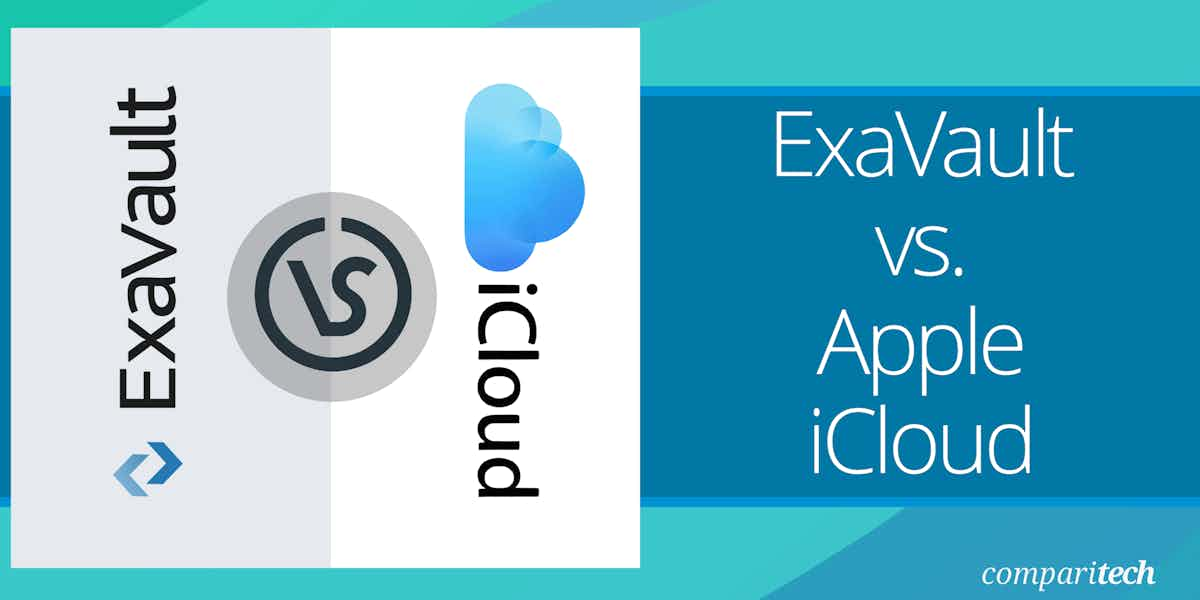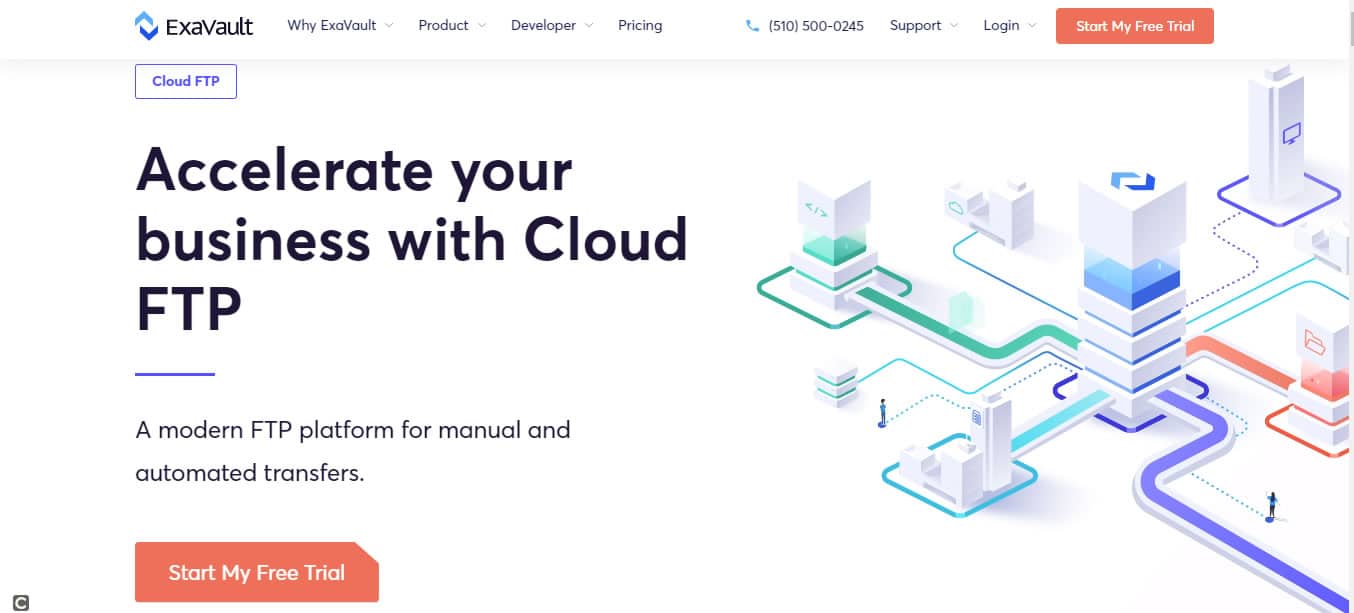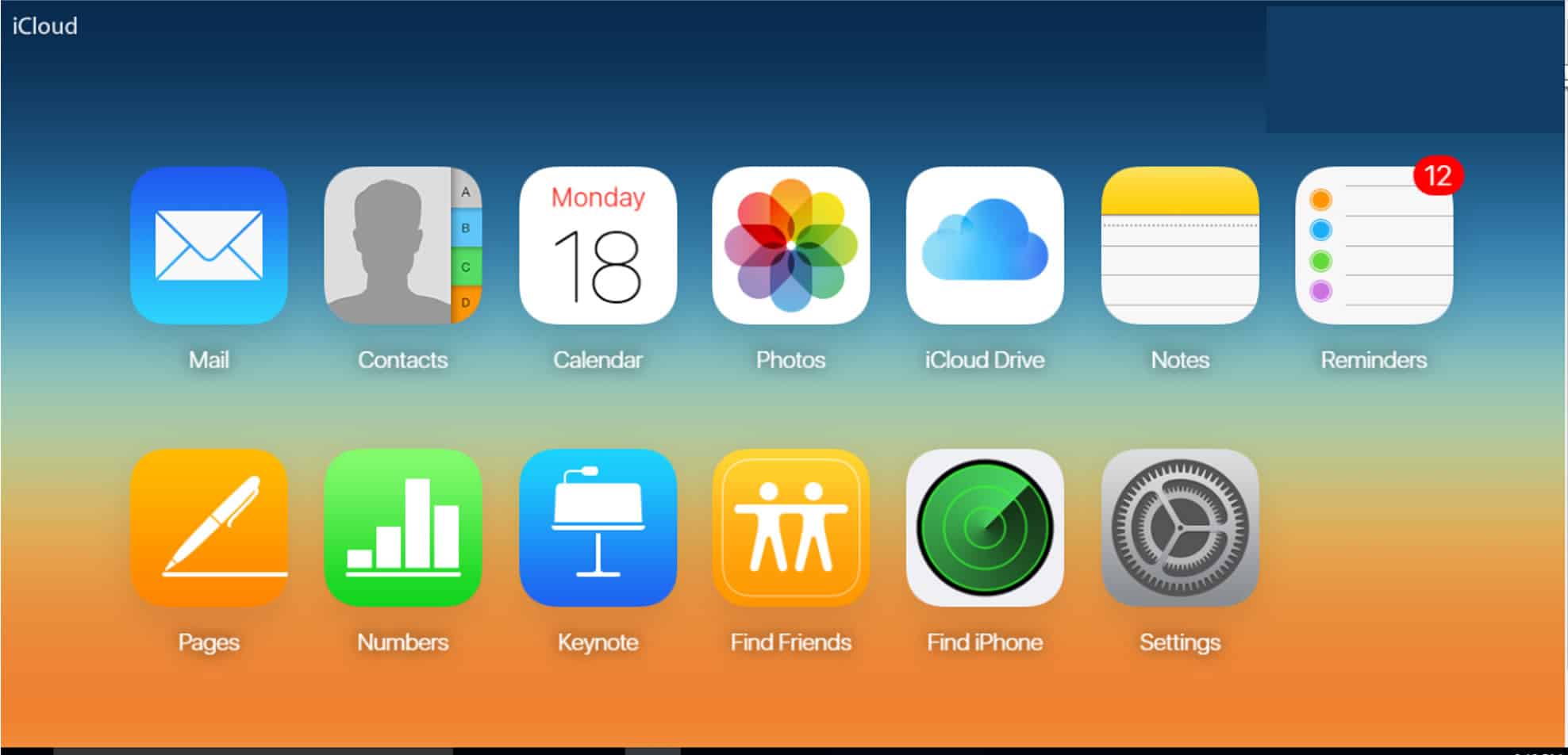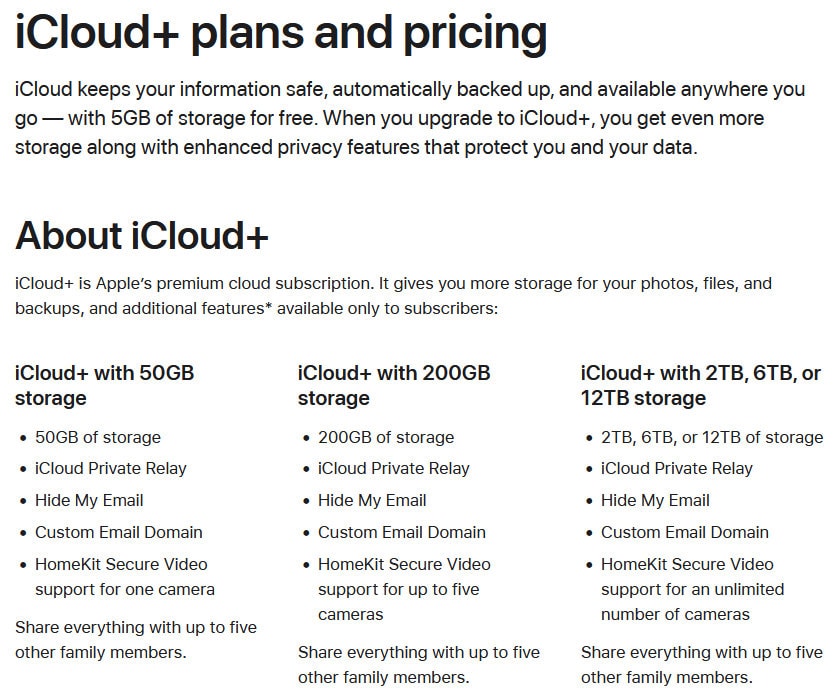Overview of ExaVault
ExaVault is a cloud-hosted FTP platform that enables organizations to securely store, transfer, and share files between users, teams, and organizations. The ExaVault FTP solution provides a robust and secure environment for transferring files over the Internet. It offers a range of features and functionalities that cater to the needs of businesses and individuals who require a reliable and user-friendly file transfer system. ExaVault is targeted at SMB and mid-market businesses and provides support for FTP, SFTP, FTPS, and FTP-SSL protocols. If you or your organization frequently works with large files and require a reliable and efficient file transfer system, ExaVault is an excellent choice.
In March 2022, ExaVault was acquired by Files.com — a U.S.-based cloud-native Managed File Transfer (MFT) service. However, according to ExaVault, it will continue to operate as a standalone platform in the short term, over the year until it is fully merged with the Files.com platform. Thereafter, ExaVault existing customers will be migrated onto the unified platform, and will get the following additional capabilities and benefits included with their subscription:
- SOC-2 compliance
- Global footprint: Your choice of 7 regions for file storage, including Europe, the UK, Australia, Japan, and Singapore
- Built-in Microsoft Office integration, supporting real-time co-editing
- Stronger security features, including encryption at rest, 3 more types of 2FA, and more compressive controls around IP lists, keys, and passwords
- Granular permissions capabilities
- Desktop app (Windows and Mac)
- Mobile App (iOS and Android)
- Command line app, better API, and SDKs for 6 languages
- Higher quality, instant search results
Exavault offers a free 10-day trial with full access to the entire platform, including all integrations, automations, protocols, and APIs. When you’re ready to buy, your trial environment will seamlessly convert into your paid environment.
Overview of Apple iCloud
Apple iCloud is a cloud-based file storage and synchronization service developed by Apple to give its customers a seamless experience for their Apple apps across all Apple devices. iCloud enables users to store and share data such as documents, photos, and music in the cloud for download to iOS, iPadOS, macOS, or Windows devices, and to manage their Apple devices if lost or stolen. Every user gets a free 5 GB of iCloud storage to start. Those seeking extra storage space or other advanced features can subscribe to iCloud+, which is the premium subscription that expands your iCloud service.
If you use Apple’s devices and office productivity apps, iCloud is an attractive choice, because it’s tightly integrated with them on all supported platforms. Apple iCloud is more closely comparable to Google Drive and Microsoft OneDrive than it is to ExaVault. Still, it doesn’t quite measure up to the competition due to limitations in its scope of service and features. iCloud also works well on the web and the Windows platform. For those using Windows devices, Apple offers iCloud for Windows which allows you to sync and access your photos, videos, mail, calendar, files, and other important information on your Windows PC. However, Apple doesn’t offer iCloud apps for Android devices. Some attractive features of iCloud are its simplicity and ease of use, seamless and native integration with Apple devices, along with a free email account and 5 GB of free storage.
ExaVault vs. Apple iCloud: How They Compare
Installation and Setup
ExaVault is a cloud-based FTP application, which means there are no installation hassles other than the usual sign-up process using an internet-connected device with a supported browser. The sign-up process is straightforward and can be completed in a few simple steps as shown below:
- Sign up and create an account: Visit the ExaVault website and sign up for an account. You will need to provide your basic information and choose a subscription plan that suits your needs.
- Access your account: Once you have signed up, you will receive login credentials to access your ExaVault account. Use the provided username and password to log in.
- Set up your workspace: After logging in, you will need to set up your workspace. A workspace in ExaVault is essentially a container for your files and folders. You can create multiple workspaces based on your requirements, such as for different projects or clients.
- Configure user accounts: As the account administrator, you can create user accounts for yourself and others who will be accessing the ExaVault platform. User accounts allow you to control access permissions and manage file transfers within your organization.
- Install FTP client software (optional): To fully utilize the features of ExaVault, you may need to install an FTP client software on your computer. FTP clients such as FileZilla, Cyberduck, or WinSCP can be used to connect to the ExaVault server and transfer files. Follow the instructions provided by your chosen FTP client to install it on your system.
- Connect to ExaVault: Launch your FTP client software and enter the necessary connection details, such as the FTP server address, username, and password. These details can be found in your ExaVault account settings. Once connected, you can start transferring files to and from your ExaVault workspace.
Just like Exavault, iCloud is also a cloud-based service, which means there are also no installation hassles other than the usual routine sign-up process which requires an existing Apple ID. An iOS device running iOS 8 or later, or a Mac running OS X Lion v10.10 or later, as well as an internet connection and a compatible web browser. Once signed in, you can begin to store, sync, and access your files seamlessly across your Apple devices and/or Windows platform.
Cloud Storage and Backup
Exavault isn’t designed for online storage and backup, but it performs this function indirectly. It is primarily a cloud-based managed file transfer application, which means its focus is on the secure transfer of files. This also implies that the huge amount of file data that passes through the Exavault network for file transfers is also securely stored on their cloud storage servers around the world. Uploading files, copying files, creating, or updating new versions all contribute to additional storage usage. ExaVault also allows you to create folders and subfolders within your workspace, enabling you to organize your files and maintain a structured file hierarchy. This makes it easier to locate and manage your files efficiently.
iCloud is a file hosting service, which means data storage and backup are part of its primary function. You can use it to store, back up, and restore iPhone/iPad/Apple Watch data, macOS desktop and documents files, email files, photos, music and videos, contacts, calendar, mail, notes, and reminders. But a lot of users do complain that the 5 GB free storage it offers is way below expectation because they spend thousands of dollars on Apple products. Nonetheless, Apple cloud storage and backup service can only be fully enjoyed if you use Apple products such as iPhone, iPad, and MacBook. Files automatically sync to all devices signed in to your account, including iOS devices, Macs, and Windows PCs, but not Androids. There’s a file-size limit of 15 GB, which means it’s a poor storage option for large single files such as video and email files. If this is the kind of data you are looking to back up online, check out our best cloud backup services.
File Sharing and Collaboration
The real power of Exavault is made manifest when it comes to business-critical managed file transfer workloads. Within ExaVault’s user-friendly web-based interface, you can conveniently send files, share folders, receive files, and perform various tasks effortlessly. The intuitive design allows for seamless navigation, and the drag-and-drop feature simplifies the organization of your files. All your files and folders are accessible in a single, easy-to-manage interface. With streamlined file transfer operations, you can search, click, and share files effortlessly, enabling efficient collaboration and productivity.
A shared folder allows you to let outside parties access a folder in your account (including any files and nested subfolders) using just a link. A file send lets you send one or more files via an easy download link. File sends are different from shared folders because file sends are a ‘point in time’- the recipient will get the files as you sent them. Sharing a folder with customers or colleagues is as simple as a single click, instantly generating a unique URL for the shared folder. You can conveniently send invitations via email or instant message to grant access to the shared folder directly from the interface.
In terms of performance, the ExaVault FTP platform excels at providing fast and efficient file transfers. It leverages multiple data centers strategically located around the world, ensuring that users experience reliable and speedy transfers regardless of their geographic location. This makes it an ideal solution for businesses with global operations or remote teams that need to exchange large files quickly.
On the other hand, although iCloud offers decent file syncing functionality when it comes to file and folder sharing, Apple iCloud lags in comparison to ExaVault for obvious reasons. Nonetheless, iCloud files can still be shared, and sharing with iCloud always requires an Apple ID. There’s also no way to edit them directly in the cloud unless you download them locally. This makes collaboration with other users a bit difficult since each person has to download the files locally before making changes to them. This is where ExaVault stands out.
Integrations and Extensions
With ExaVault’s RESTful API, you have complete control and the ability to automate various aspects of your account. This powerful API empowers you to perform tasks such as creating new users, transferring files, retrieving activity logs, and more. Additionally, ExaVault offers built-in webhooks that provide programmatically triggered notifications whenever changes occur. You can leverage web or FTP connections to seamlessly transfer files, and orchestrate all of these functionalities seamlessly using the ExaVault API.
Apple’s approach to integration in iCloud is to allow frictionless interconnectivity with Apple iOS devices and operating systems. iCloud is so deeply woven into Apple products that users hardly notice it is there. iCloud also supports integration with Microsoft Windows 11 photos app, HubSpot, and other select third-party tools. There are fewer integration options available on iCloud compared to ExaVault.
Security and Privacy
ExaVault prioritizes data security by implementing advanced encryption protocols during file transfers and storage. This ensures that your files are protected from unauthorized access and interception. The platform utilizes industry-standard encryption protocols to protect data during transit, ensuring that files are securely transferred between parties. Additionally, ExaVault offers advanced user management features, allowing administrators to set user permissions and control access to specific files and folders.
ExaVault provides support for user permissions (read-only, write-only, limit sharing, restrict to home folder, expire user), global permissions (Limit to FTPS/SFTP, IP restrictions, require two-factor authentication, comprehensive audit logs), and share permissions (expire share, password protection, require an email to access, download only mode, delivery receipts). Shared folders can be restricted; e.g., with an expiration date, password, download-only, etc. Shared folders are ‘live’; if someone makes a change to a file in your shared folder, it will be immediately reflected in your account, and vice versa. Share access logs to let you review who’s done what at any given time. It keeps you up-to-date with who has been in the share when it was created, and if any files have been downloaded.
Being one of the Big Five technology companies in the U.S., Apple’s robust infrastructure, huge investment in security, along with high concentration of technical expertise, puts them in a good position to provide top-notch security. Some of its key security features include two-factor authentication, notification when login is performed from a web browser or a new device, notification when data is restored to a device, encryption for data at rest, and data in motion, among others. But when it comes to data encryption, Apple itself keeps the encryption keys, which means it has the power to decrypt your files and hand them over to law enforcement if need be. If data privacy is a concern, you may consider cloud storage services that implement zero-knowledge security.
Licensing and Price Plans
ExaVault offers affordable pricing options for businesses of all sizes. Its pricing plans are broken into Starter, Power, and Premier price plans as shown in the table below.
| Features | Starter | Power | Premier |
|---|---|---|---|
| Minimum User Commitment | 5 | Minimums Apply | Minimums Apply |
| Monthly Usage Included | 1 TB | 5 TB | 10 TB |
| Daily API Request Limit | 50,000 | 250,000 | 2,000,000 |
Table 1.0 | ExaVault Pricing and Licensing Plans
Plan pricing is partially based on user count, which means that you must commit to a minimum number of users. Charges are based on one total monthly number called “Usage,” representing your total billable usage of the Exavault service. This “Usage” number is the sum of your “Storage Usage” and your “Transfer Usage.”
Figure 1.0 | Apple iCloud+ Price Plans
Apple offers a meager 5 GB of free cloud storage space to its customers, and reasonably priced iCloud+ paid plans with 50 GB, 200 GB, or 2 TB of storage. iCloud pricing is not uniform. It varies depending on your country of residence. But whichever country you reside in, the three-category plan remains the same. You can check out Apple’s pricing breakdown by country. Some plans let you share data with members of your Apple Family. In the U.S. for example, the current pricing includes:
- $0.99/month: 50 GB of storage (single user)
- $2.99/month: 200 GB of storage (family use)
- $9.99/month: 2 TB of storage (family use)







